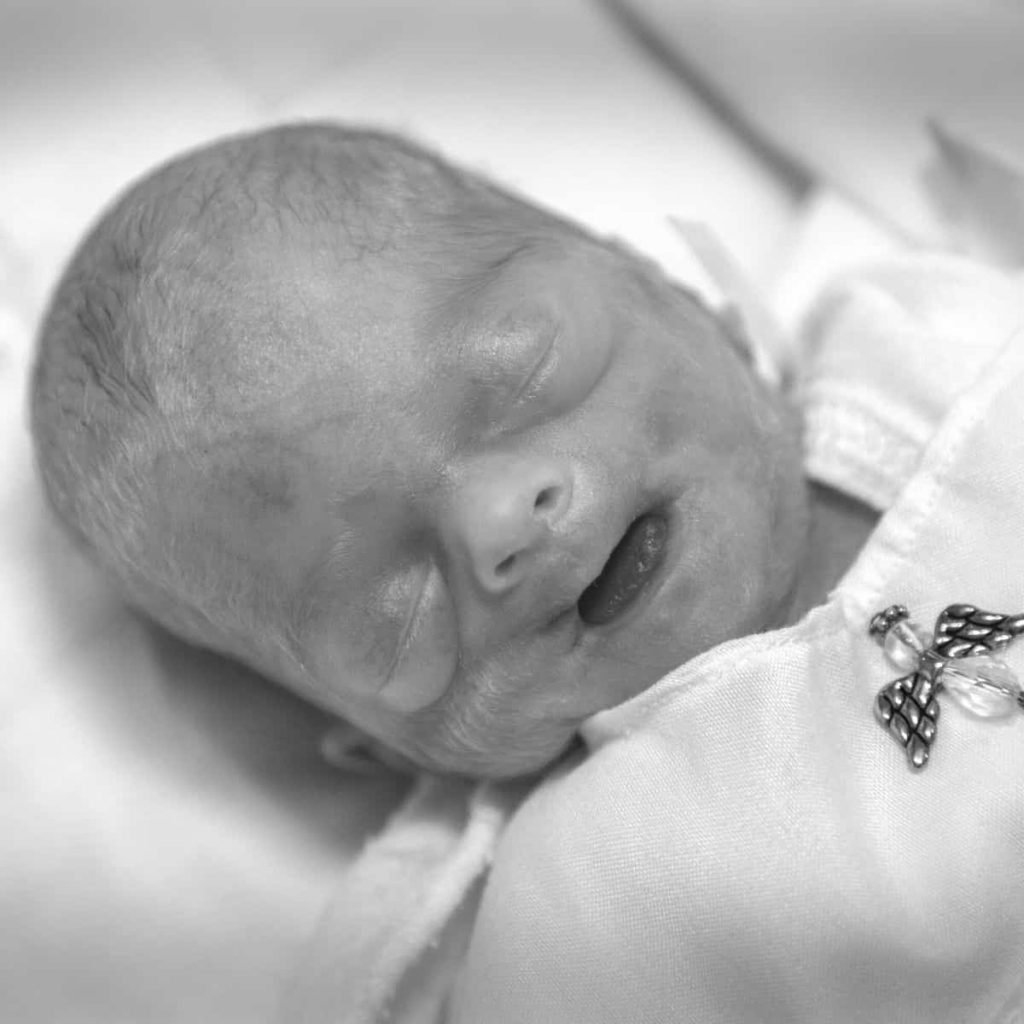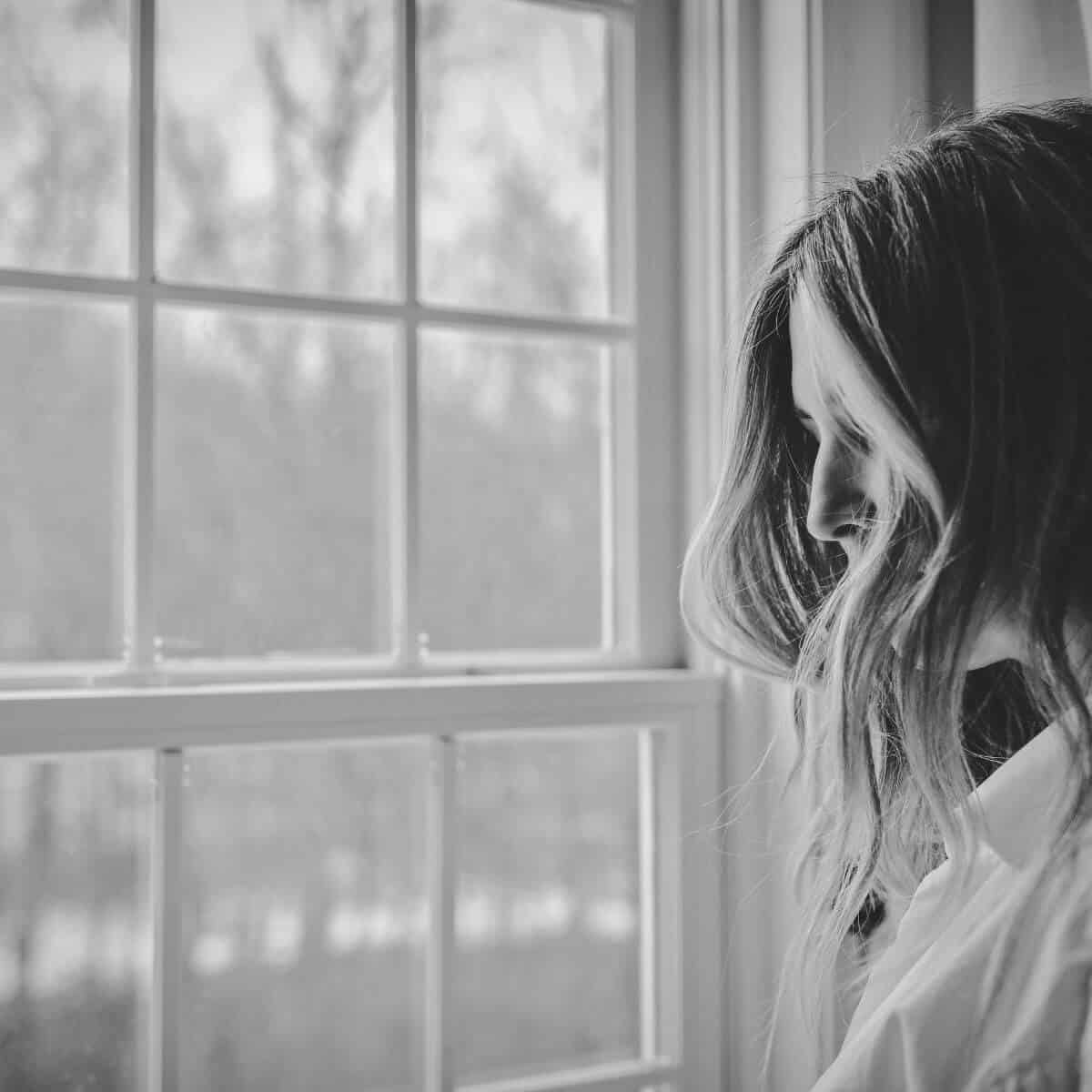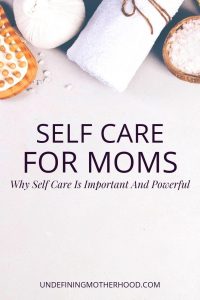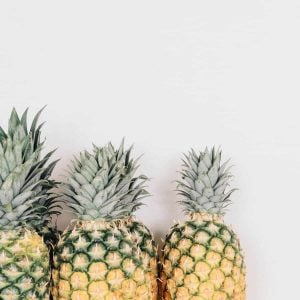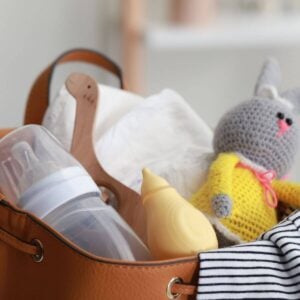This article is the third installment of a series by Michelle Valiukenas. This is one loss mom’s journey of finding her way after losing her daughter, Colette. You can find part one of Michelle’s story here, and part two here.
When I was a teenager, my great uncle died after a long illness, and my mom and grandmother traveled to his funeral. Later, my mom told me that after the burial, my great grandmother grabbed my mom’s arm and said, “I should have gone first. No one should have to bury their baby.”
That statement from a brave, amazing woman like my great grandmother, someone who would live another twenty plus years until age 97, always stuck with me.
Since losing my daughter Colette, I think of this statement often.
Because I understand the concept of death, I know that the circle of life sets us up to believe that we are supposed to bury our parents, outlive our children, and then they bury us.
So when our babies die, that cycle is broken, sending us into an unknown, freefall plummet of confusion and grief, of losing ourselves.
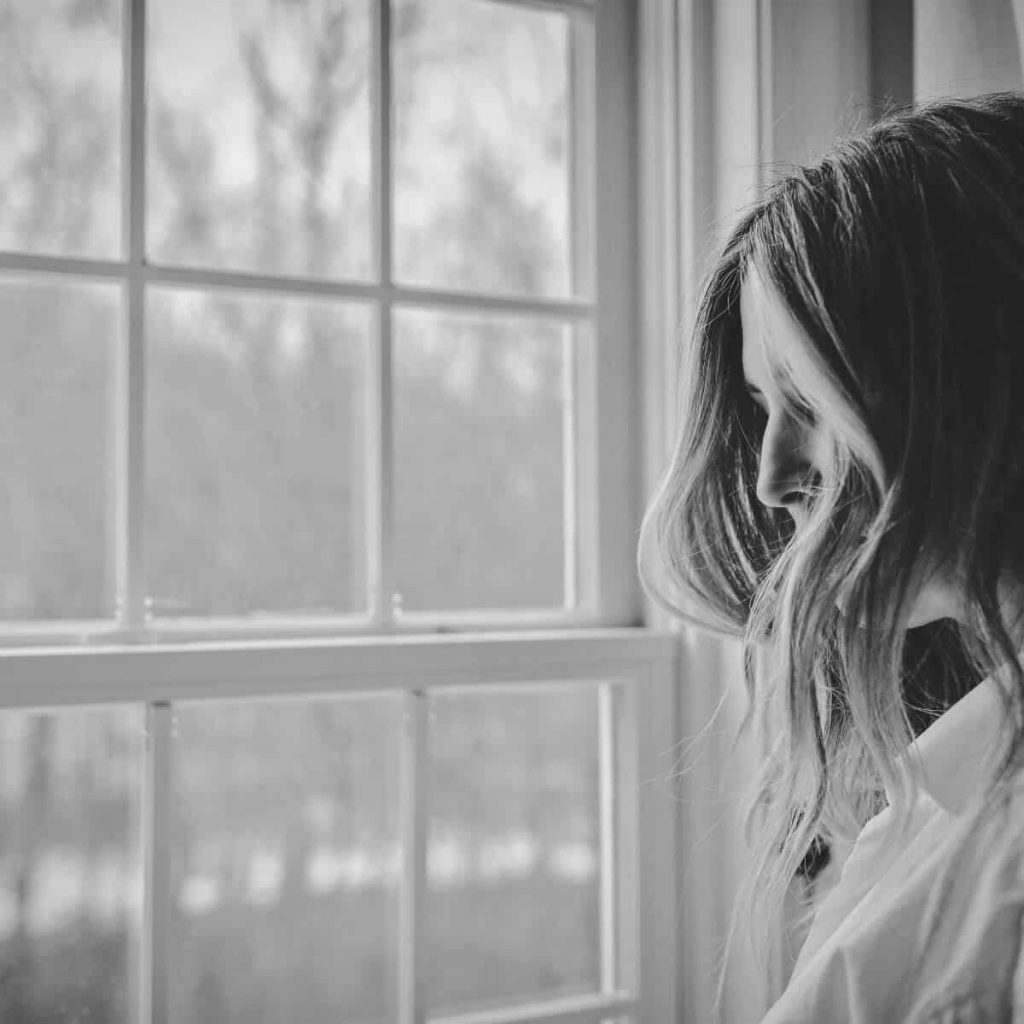

This site contains affiliate links, meaning that we earn a small commission for purchases made through our site. We only recommend products we personally use, love, or have thoroughly vetted.
My Daughter’s Death Changed Me
A piece of me died alongside Colette.
But losing her also taught me how precious life was and that some previously important things were actually quite unimportant.
After her death, I didn’t (and still don’t) care how perfect things looked or seemed because my family would never be perfect. I didn’t care if it looked like I had it all together because my daughter dying meant that, ultimately, I did not have it all.
When Colette died, I felt so incredibly lost.
Me, the planner, the one that friends and family can rely on to organize and coordinate everything, suddenly was just lost.
My sister showed up the next day and told us to get dressed, and then took us to eat; then to the funeral home; and then the cemetery.
I just remember us following her around, handing over our credit card when needed and not knowing what exactly we had done.
To this day, neither of us remembers how much anything related to the funeral cost, and I know that if my sister had not shown up, there would have been no way we would have planned everything on our own.
Planning Is No Longer Important to Me
Ask anyone who knew me before Colette’s death to describe me, and at some point, inevitably, they will say that I was always “on top of everything” and planning for any and all contingencies.
That is what I was good at–I was always ahead of everything, afraid to let anything go beyond my control.
I shifted all of my thinking after losing Colette. I realized that I had done everything by the book and still lost my daughter. So what did it matter?
Before Colette, I worried about the most ridiculous things.
The joke in my family used to be that I would not drive if the gas was under a quarter of a tank. The idea of running out of gas was so anxiety-provoking that I did literally everything in my power to ensure that it did not happen.
After Colette passed, my mom was driving my car one day with me as a passenger, and she said, “oh I’m so sorry, your gas light just came on.”
I shrugged and said, “oh, no worries.”
She nearly had an accident as she turned to me and said, “who are you?” I responded, “yeah my daughter died–somehow running out of gas just doesn’t seem like that big of a deal.”
Screw the Rules
I started knitting 14 years ago.
Before Colette died, I was a very strict knitter—follow a pattern to the very last detail, rip out if there was even a slight mistake, and come up with a finished product that was as it was supposed to be.
Then, my world got turned upside down and it seemed like none of the rules mattered anymore. Who cared if I followed the rules?
The effect of these feelings of “screw the rules” became completely apparent to me in January 2020 when my mom and I traveled to New York for a knitting event.
I took four different classes and found that the two I liked the most involved teachers who basically allowed me to be free with experimenting and trying some new things.
These teachers taught on the premise that there were no mistakes. Think Bob Ross, but much brighter and with yarn, and you have a general idea of those classes.
But, in the other two classes that were much more technical, I found myself consumed by the idea that if it was not perfect, you had to rip it out.
In one of the classes, the first hour was spent looking at samples and finished products to show the various stitches. This also became the hour of pointing out mistakes.
The final straw came when it was time to leave the class, and the teacher pointed out one of the samples to show a mistake that, yes, was fairly drastic.
It was passed around the room and everyone near me was saying things like, “Can you imagine?” “That is the worst thing to happen,” or “I would die.”
As someone who has literally lived the worst thing that could happen, I could not imagine this room full of women giving knitting that kind of label when there were so many worse things that could happen… like losing a child.
A Different Kind of Knitter
So, I’ve become a different type of knitter.
I don’t care if there’s a slight row off; if knitting it is joyful, and if whatever I am making is generally looking somewhat close to what I want, then I’m good.
I learned to love different techniques, trying different yarns, mixing it up instead of following a guide to create a specific item.
I learned to love the process, the journey of knitting.
My Loss of Faith
I have never been overly religious, but I had a strong faith in God, in doing right by others.
I was raised Catholic, so the rites of mass, church, and faith were very near and dear to my heart. I was not perfect by any stretch of the imagination, but I believed in a protective God; I believed in praying to Saints for protection and guidance for certain matters.
Throughout our journey of infertility, I would carry items for the Saints of fertility of mothers and pregnancy because I truly believed that their presence and my faith would help us along.
Even after miscarrying, I felt like these were hurdles, but that if I kept the faith, things would work out.
And even when we knew we were losing Colette, I made sure that she was baptized because it was so important to me.
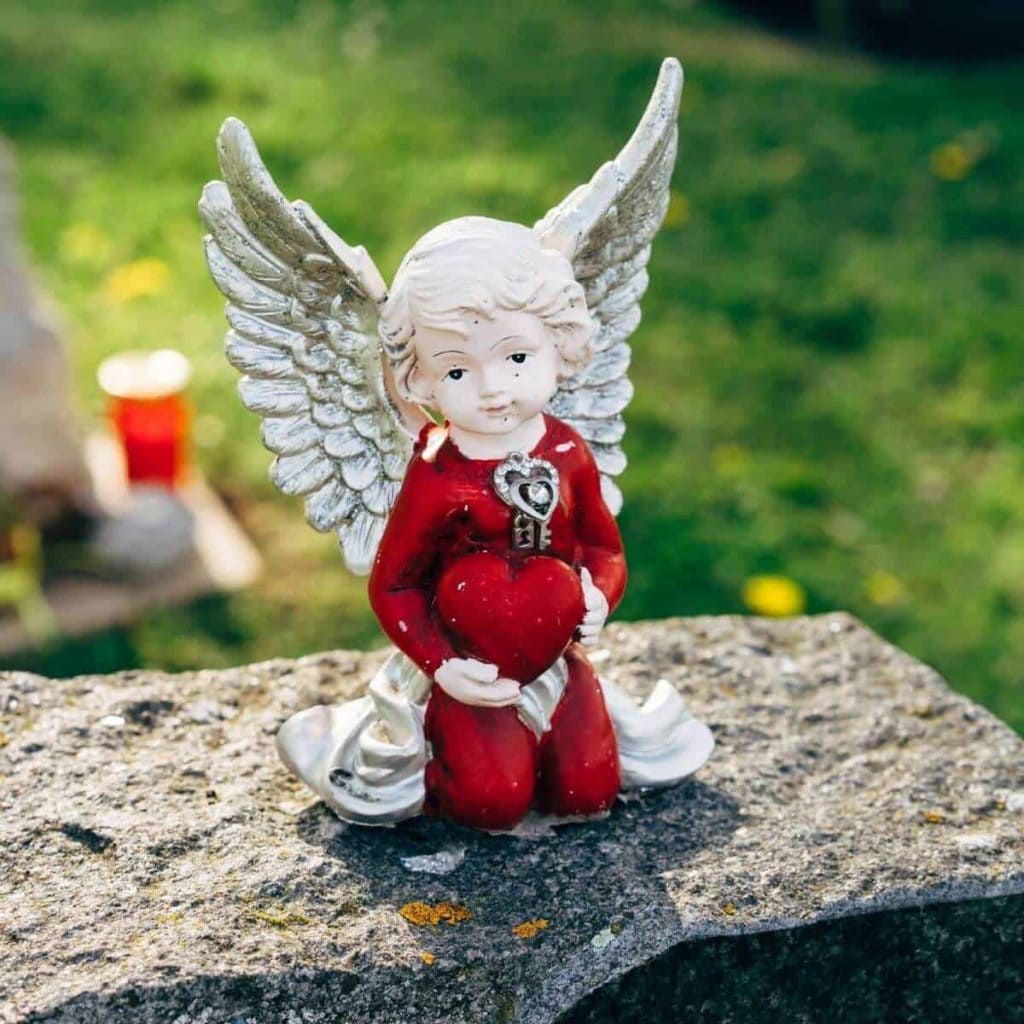
Going Through the Motions
Immediately after Colette died, I went through the regular motions that had been a normal part of my life and made sure she was buried in a Catholic cemetery and that the memorial was performed by a priest.
But I no longer had the same trust and faith in the practice of religious rituals.
I remember when my sister was helping me plan the memorial. She said she had lined up the priest, and she asked me if I wanted to talk to him about anything specific.
I said I was not ready to talk to him, but that I had a specific thing I wanted him to abide by—I said that if there was any mention that this was “part of God’s plan” or that “God had a reason” or anything similar to this, I would walk out of the memorial.
I could no longer believe that God had a plan or have faith that I would be protected because it felt like I was robbed of my daughter, of being a mother, of seeing her grow up.
God and I were not on speaking terms.
But cutting God out of my life altogether, or losing the significance of religious practice, feels like losing another piece of me–the piece that found solace and peace in my religion and my faith. I just can’t quite do that.
Secondary Losses
When your child dies, you have the obvious loss of your child, as well as the loss of seeing that child grow up and find out what kind of child they will be.
But you also suffer from secondary losses that develop as a result.
One of those losses was the loss of who I was. Nothing will ever be the same, and I will not just “get over” losing my daughter.
In the two+ years since my daughter died, I have written a lot about her and what it is like to live in a world without her. I even started a foundation in her name.
But, this is the first time I have written about Colette since our rainbow, our son, came into the world.
I love our son so much, and I still cannot believe that he is ours and that he is here, healthy, and in our arms.
But, what will he learn from me as his mother who is no longer the same person?
Well, let me tell you: he will learn all about his sister; he will learn how precious life is; he will learn how to love with his whole heart and forget the stuff that simply does not matter.
He will learn that life is far from perfect, but that it can be incredible and then awful, and then incredible again.
He will learn that grief is an ongoing process that looks more like a rollercoaster than a circle or a line, and he will learn that grief and joy and gratitude and anger can all coexist simultaneously.
He will learn that he has two parents here with him who love him so much.
But above all, he will learn that he has an older sister who watches over him and will very much be part of his life.
